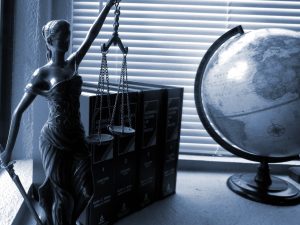Artificial Intelligence (AI) is stepping into the mainstream and has already started influencing different industries. From healthcare to finance, the innovations are endless. However, as the wind blows, the ethics surrounding AI also grow parallel to it. That’s why AI lawyers are important. They are the experts who can direct the development of ethical norms that algorithms respect for the responsible deployment of AI technologies.
Understanding the Intersection of AI and Ethics
If complex AI should be used, there are some ethical concerns also. Problems from biased systems can violate some people’s rights and freedoms. Also, it may conduct discriminatory activities like hiring or approving loans. So, we need to think about how to avoid and mitigate the damages done by AI. The one benefit we get is ethics because it defines the usability of this AI instead of AI using people.
The Role of AI Lawyers in Ethical AI Development
AI lawyers are responsible for making sure AI cannot be used beyond a certain limit that should include the interest of life and the rights of people. They help make laws and rules around it so that AI can be prevented from being misused. They take the responsibility to caution companies about their legal risks before they proceed to deploy or form an AI. As a result to that, risks can be taken care of. They even ask companies how they formulate AI models and make them legally accepted.
Strategies for AI Lawyers to Promote Ethical AI
It’s not just about compliance with prevailing laws and regulations. Insisting on the ethical use of AI requires more. So, AI lawyers are very much willing to keep themselves informed about the issues in AI ethics by attending conferences or reading the works of scholars in this area.
Interdisciplinary cooperation with technologists, researchers, and policymakers in AI ethics can also be beneficial in creating more complete rules of ethics that are effective and practical. In addition, they can also function as defenders in introducing ethics into the practices of companies and organisations that use or design algorithms.
The Future of Ethical AI and the Role of Legal Professionals
As AI will become more and more part of our lives, appropriate ethical regulations will be necessary. Lawyers trained for this purpose will guarantee that the regulations are in place and that the new instances are in the box of existing ethical, social, and legal frameworks. They will take into account the newly arising ethics. For example, AI and killer robots, AI-created work, and AI human rights lawyers. The list is expected to grow.
Conclusion
At the end of the day, AI lawyers help to achieve ethical AI. They will help to understand and manage this important intersection between tech and ethics. To ensure AI will be inclusive, open, and responsible.
Two things. The visible problems and the how-to fix-it approach. AI lawyers shall make sure AI stays responsible and ethical. They shape the decisions and rules around it so we can trust an ethical AI future.





Leave a Reply